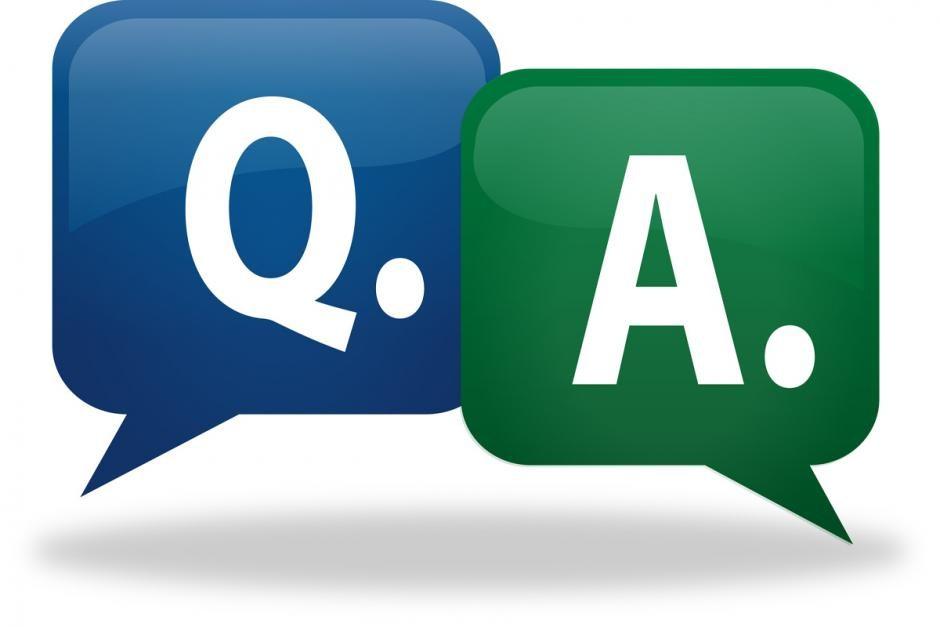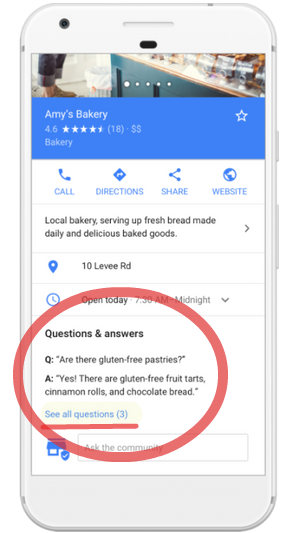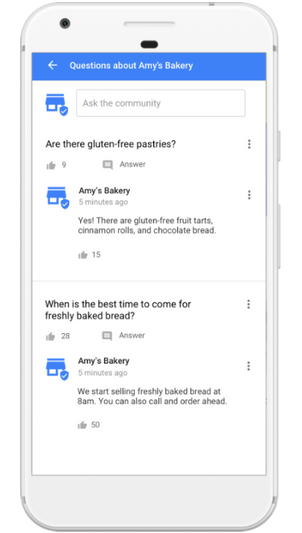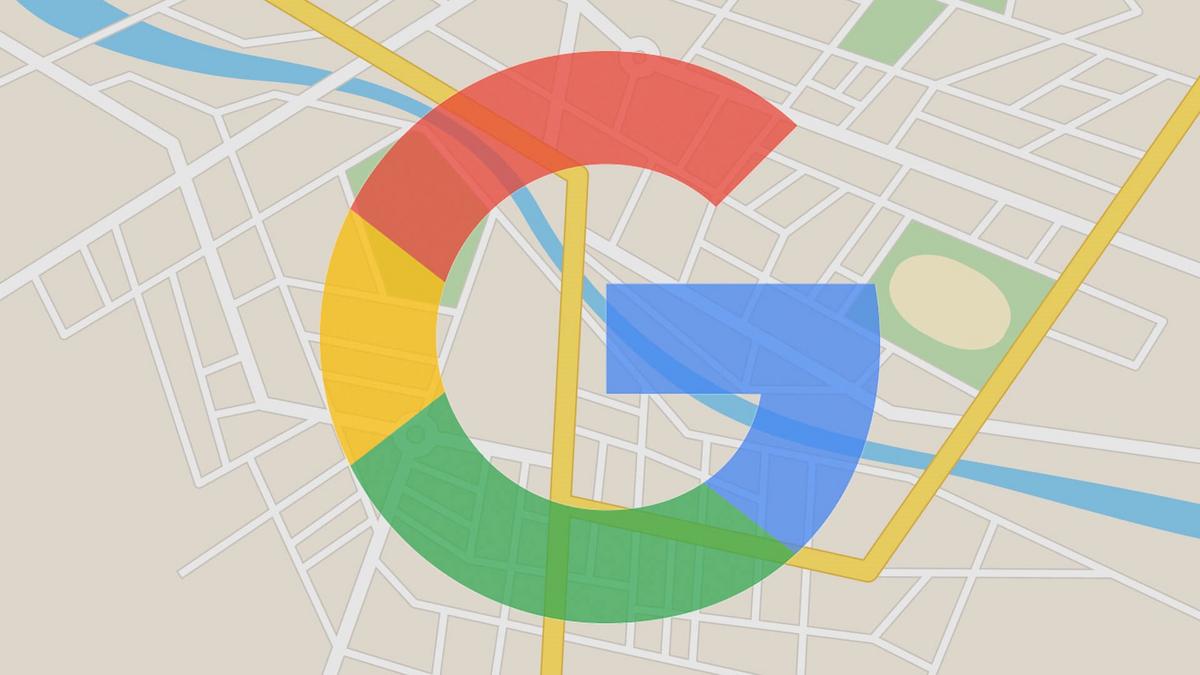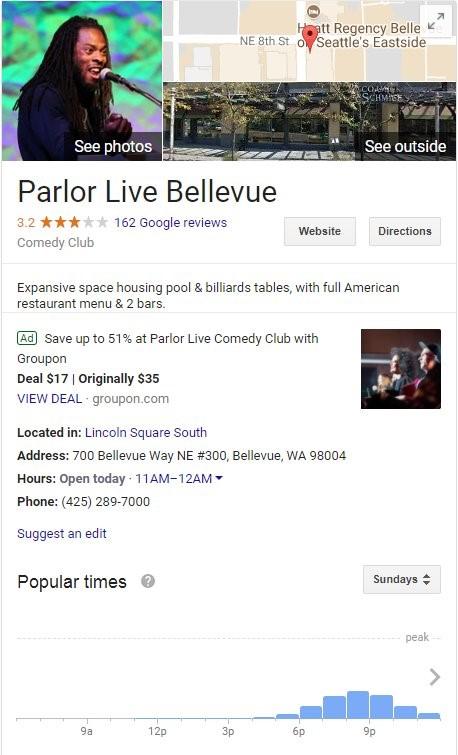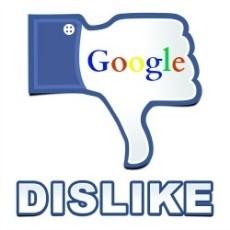BlogMonday, May 21 2018
Monday, February 05 2018
It’s 2018 and if your web page takes more than 10 seconds to load, then you are far behind! Nobody likes to wait for minutes just for your page to load — they will simply hit the back button. According to a study, 53% of the users will abandon the site if it takes more than 3 seconds to load! So it came as no surprise when Google announced that site speed will be a ranking factor within the mobile search results from July 2018. However, Google assured that only a small percentage of the sites will be affected by it since the majority of the site loads faster than 10 seconds. Also, there will be exceptions to websites which provide relevant and high-quality content to users. Those websites can still rank well in the search engine result pages because the intent of the search query is still a strong factor. If you are not sure about your site’s speed, you can use the Google’s “Test My Site” tool. This tool uses a standard 3G connection to replicate what most people are using to surf the web using mobiles. It not only tells you about your site speed but also gives suggestions on how you can improve. What About AMP? Google's announcement stated that it "applies the same standard to all pages, regardless of the technology used to build the page”, which means AMP gets no special advantage except that by its very nature it will pass all of these speed standards with flying colors. However, that doesn't mean that you get an automatic pass if you're using AMP because you need to be sure that everything is set up properly. If you need any help with mobile optimization, we can assist. Just reach out to us and we will be able assist you further. Wednesday, September 13 2017
Google started rolling out Questions and Answers (Q&A) feature for local search in the The main motto behind introducing the Q&A into local search is to get the most Here’s what it looks like on mobile device.
However, the fear of spamming is real! The competitors, or even just a single angry employee can ruin the entire Q&A section. Also, if a business has the authority to edit it, then it’s going to be as genuine and real as the “testimonials and reviews” that they put on their own website. Here's what Google says: "To make sure “Questions & answers” contains the most accurate and useful local info possible, business owners can add frequently asked questions and answers as well. In addition, when you (a customer) ask a question about a place, we notify the business owner and other in-the-know users to see if they have knowledgeable answers to contribute. When your question is answered, we notify you too." Let’s see how Google is going to tackle these issues. Meanwhile, you might want to start writing content for the Q&A section. Reason being, Google has just launched it and is hungry for content (data), they will hardly filter it out and will most likely accept just about anything you post. You can actually benefit from the desperation of Google and ignorance of your competitors. Remember, the early bird gets the worm! Tuesday, September 12 2017
You can now add videos to local listings in the Google Maps using any Android device. Google is rolling it out slowly, so you might or might not see it right away. This feature is not only good for the business owners but the users as well. Because pictures tell altogether different story while video remains close to reality. “Close” because of all those filters available for the videos. Meanwhile, if you are a local guide and willing to earn some extra points, while helping the folks out here, start uploading videos of the business and local places. It is available only for local guides and Android users but can be seen and searched by any one. You can take a 10-second video from the Google Maps app or can upload a 30-second video. You can add videos: • From a place’s page How to upload a video you’ve already shot: • Search and select a place on Google Maps Visit the Help Center to learn more about sharing videos. Saturday, September 09 2017
Google is testing more ad opportunities in local knowledge panels. Although they have been testing ads on knowledge graphs for quite some time now. Here’s the ad spotted in the Knowledge Graph:
Google spokesperson said that the paramount goal of Google is to provide the users with most updated, useful and relevant information. So we are searching out for new ways to surface useful local information. If this new feature adds to the user's experience, only then we will fully launch it. We will keep a close eye on this as usual and keep updating you with more information in this topic. Wednesday, May 27 2015
The mobile-friendly update began on April 21st. Fourteen days later, Google announced that more Google searches now take place on mobile devices than on computers in 10 countries, including the US and Japan. Google Adwords has adapted over the years to be more accommodating to mobile search, and to help advertisers measure cross device conversions. This month, Google introduced several new products and innovations that allow you to “measure every moment that matters,” understand the full impact of your PPC campaigns and make better decisions for your business. Click here to read more. Sunday, May 17 2015
Sharing a link on Facebook mobile isn’t easy. It’s a clumsy process that sends Facebook users to Google, a competitor for mobile advertising dollars. Now, Facebook is testing an “Add a Link” button that, according to this article, “gives users fewer reasons to leave the Facebook app, reduces the clicks needed to share content and diminishes the chances that the user will end up at Google. Instead of the four or five steps that might be required to find, copy and paste a link in a post, users can now add links with a single tap. Facebook is betting that the easier it is to share links, the more links a user will open and post and the more the social network will know about that user’s interests.” Facebook’s objectives: 1. Take traffic from Google and 2. Learn more about users’ interests, which will help advertisers better target their campaigns. Let us know if you’d like more information about advertising on Facebook or other social media platforms. Monday, March 23 2015
From Google’s Webmaster Central Blog: “Starting April 21, we will be expanding our use of mobile-friendliness as a ranking signal. This change will affect mobile searches in all languages worldwide and will have a significant impact in our search results.” In other words, make the necessary changes to your website or risk losing rankings. Search Engine Land reports that the algorithm runs on a page by page basis, “So if you have 10 web pages on your web site and 5 of them are mobile-friendly and 5 are not, then only the pages that are mobile-friendly will benefit...Many websites have sub-sections or specialized pages that would be hard to make mobile-friendly, so webmasters do not need to fret about going 100% mobile-friendly by April 21st.” Click here to read Google’s Mobile Friendly Websites guide. Click here to check if YOUR website is Mobile Friendly or not. Sunday, March 15 2015
A new Facebook insights product called “Topic Data” will soon be available to a select group of marketers. Topic Data will show marketers what audiences are saying on Facebook about events, brands, subjects and activities. According to WSJ: Facebook for the first time is promising insights companies can use to develop products or decide which audiences to target. A business marketing a hair-de-frizzing product might use Topic Data to see demographic information about people discussing humidity’s effects on their hair. The company might use that information to improve marketing campaigns on Facebook or TV, or to identify potential customers they hadn’t previously considered. Facebook plans to “Iterate on Topic Data thoughtfully and deliberately, and look to expand its availability at a later date.” Thursday, January 15 2015
The big news at the 2015 Consumer Electronics Show and posted on Google’s blog: This spring, Sony, Sharp and TP Vision, with its range of Philips TVs, will start shipping televisions powered by Android TV. These have all the goodness of Android TV built in so you won’t need to plug anything extra into your television. You can use a single remote to watch live TV channels and play games, movies or shows from Google Play and your apps. Where Google goes, advertising follows! Saturday, December 13 2014
With about 1.35 billion monthly active users, Facebook is the top social media destination. This month, Instagram, with its 300 million users, moved up to second place. Twitter is now in third place with 284 million users. Thursday, September 04 2014
Social media is a great way for a small business to attract interest in its products and services. Once you build your social media community, you can get your prospects and customers excited about whatever it is you’re selling. For many customers, there’s a big gap between thinking about buying and actually taking the steps to place the order. Some social media platforms are attempting to close that gap by adding a BUY button. This month, Twitter announced plans to “publicly test a BUY button that can be embedded in posts to allow users to buy a product with a couple of clicks.” In July, Facebook started a similar test. This is a good time to ramp up your social media marketing campaigns so you’re ready when Twitter, Facebook and others open up these selling opportunities to all businesses. Wednesday, September 03 2014
Google. Still Google. According to comScore, Google holds 67.6 percent of U.S. search engine market share. How can any ad network compete with a company that owns about two-thirds of search traffic? Despite the bold claims made by Bing (remember the Bing challenge?) and industry speculation that Facebook PPC could be a threat, no other PPC platform has been able to make a dent in Google’s booming PPC business. Facebook is showing some strength in the mobile advertising space. According to this article, “Facebook is nearly monopolizing the growth in the global mobile ad industry, having more than tripled its share of the market from 2012 to 2013...but Google remains the dominant force with just under half of the mobile ad market (49.3 percent).” In the midst of developing Amazon Prime Air (drones delivering packages to customers in 30 minutes or less. Really!), Amazon has been working on a new ad platform that's designed to be a direct challenge to Google AdWords. Perhaps Amazon will finally give Google AdWords some real competition. Saturday, July 12 2014
Upon the arrival of Google+ Local, many small business owners who were attempting to manage their Google local listings finally had to admit defeat. Local listings management has never been easy, but it seems that Google has done more to complicate matters than fix them. The new Google My Business product looks like a big improvement. According to Google: Click here to read Frequently Asked Questions about Google My Business. Sunday, June 15 2014
In December 2013, Facebook released Premium Video Ads, “designed for advertisers who want to reach a large audience with high-quality sight, sound and motion. Each 15-second video ad will start playing without sound as it appears on screen and stop if people scroll past.” Nice...but not affordable for small businesses. Facebook video ads no longer require a Fortune 500 budget. With expanded video capabilities, small businesses can use Facebook’s standard video ads to “encourage people to engage more deeply with their brand and products is by adding a call-to-action inviting people to learn more and visit a destination of their choice, like a specific page on a website, after viewing the video.” According to an article on Adweek.com, internet video ads have higher impact than TV ads. Click here to read more. Thursday, June 12 2014
In 2006, CBS placed laser imprints of its logo and logos for some of its shows on 35 million eggs with slogans like “Crack the case on CBS” (for the show CSI) and “Scramble to win on CBS” (The Amazing Race). New Zealand clothing store Suprette put indented plates on bus stop, mall, and park benches, so that when people sat down, the company’s advertising message “short shorts on sale” was imprinted on their thighs. A Salt Lake City woman sold ad space on her forehead for $10,000. Karolyne Smith now has a permanent GoldenPalace.com tattoo across her forehead. While unusual and creative ads placements can attract attention, online marketing campaigns are more targeted and, when properly managed, capable of tracking conversions and ROI. PPC Remarketing Ads are especially powerful for helping small businesses turn leads into conversions. Thursday, June 05 2014
Until recently, most magazine publishers refused to place ads on a magazine’s cover. According to Adage.com, “The industry’s major players have until now almost entirely resisted pressure to sell cover ads... the real estate is thought of as the editor’s first and best statement to readers, one that should be presented without interference from an ad. The influential American Society of Magazine Editors also advises its members to avoid the practice.” This month, Time and Sports Illustrated ran Verizon Wireless ads on the cover—not a cover wrap or a sticker, but an actual ad. Most readers probably missed it because it’s very tiny. Adage.com also reports that Time Inc., has pitched media buyers on ads that would run across the bottom of its magazines’ covers and is also shopping around a “native placement” ad for the table of contents. (The table of contents is usually considered off-limits to ads.) Considering the rapid decline of print media advertising revenue, it’s pretty amazing that any part of a magazine is still off limits to advertisers. Especially when... Tuesday, May 20 2014
According to a recent study by Bunnyfoot (a usability and user experience design firm), an estimated one-third of people who use Google Search don’t recognize the difference between a paid ad and an organic result. In other words, a significant number of people think the item at the top of the page is there because it’s the best match for their search query. After hundreds of tests over the past decade, the team at Bunnyfoot concluded that, “... it is very difficult to predict what customers’ knowledge or understanding is. When you do the tests, you are often humbled and surprised with how far off your assumptions are.” This is a good reminder that it’s unwise to assume you know what your customers are thinking. Thursday, May 15 2014
Google, Facebook, Twitter and AOL have joined together to launch TrustInAds.org, with the mission to keep the user experience positive for everyone on the web and keep ads safe. From the TrustInAds website: ...There are scammers that try to “game the system” to find ways to exploit consumers by getting harmful and deceptive ads published on reputable websites. In many cases, these ads - on the surface - appear normal and harmless, but may surreptitiously redirect a person to webpages that can install malware to a computer or mobile devices, direct them to scam or phishing websites, or try to sell them counterfeit goods. Any effort to thwart the bad actors on the internet helps the upstanding businesses that depend on leads from their PPC advertising campaigns. Click here for more information about TrustInAds.org. Sunday, April 06 2014
In March, Google made a number of changes to its search results layout. Jon Wiley, Lead Designer for Google Search, summarized the modifications in his Google+ post: We’ve increased the size of result titles, removed the underlines, and evened out all the line heights. This improves readability and creates an overall cleaner look. We’ve also brought over our new ad labels from mobile, making the multi-device experience more consistent. Previously, ads were placed over a shaded background and now, they are differentiated by a small yellow “Ad” button. People who cover industry news can’t seem to agree whether the new layout makes ads more obvious, or less obvious. Many believe the ads now blend in with organic search results and more people will click on them—an advantage, perhaps, for advertisers with well-structured PPC campaigns. Sunday, February 16 2014
Did you know that Pay-Per-Click Advertising can be targeted exclusively to people who have visited your website? These are people who have already demonstrated an interest in your products and services. |
|
|


